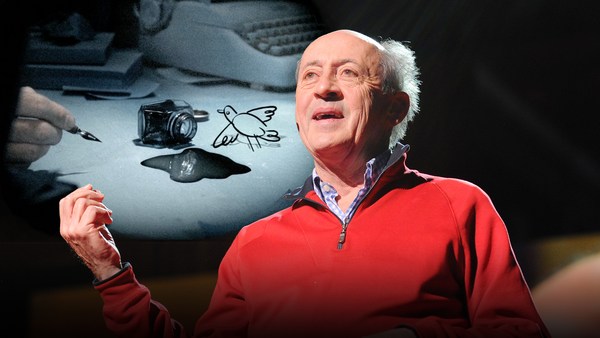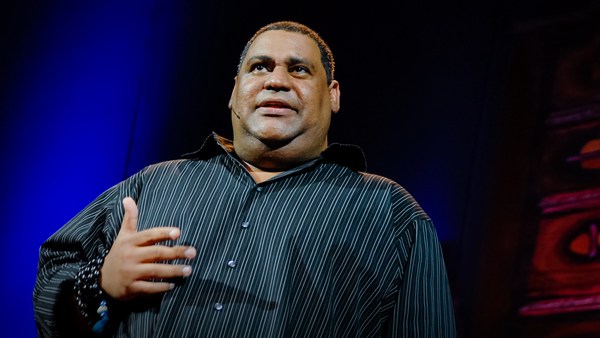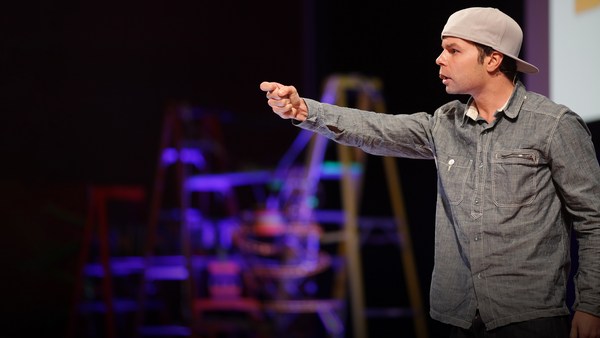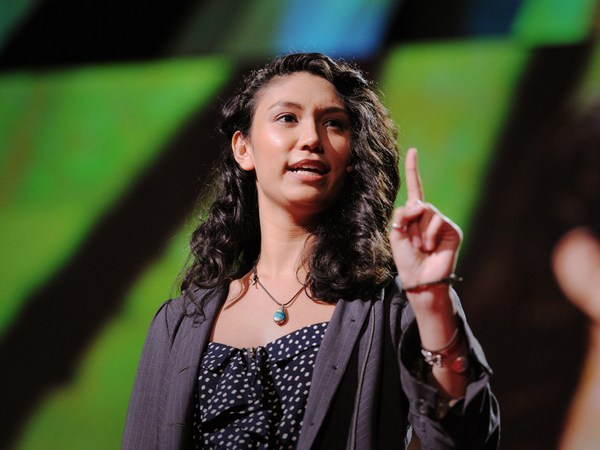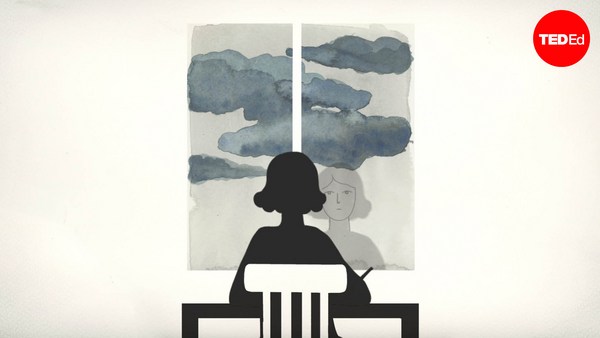There is hope in the pain, beauty in the struggle, and faith in the darkness. My name is Suaad Mohamoud. I was born in Somalia and migrated to the UK when I was just five years old. My parents fled the war in Somalia and came to the UK to give us a better life. My parents were no strangers to harsh conditions and a difficult life. My mother was a nomad and shepherdess. From as young as six years old, my mother was waking up at 6 AM, herding livestock to make ends meet. That life that my mom lived is far from the life that I would come to live, where my biggest problem would be moaning about having to wake up at 8 AM at school. Both of my parents have seen, first hand, the difficult life that one lives when they are torn from their country due to war. They’re my inspiration, and as I share my story of pain, struggle, and survival, I hope that you remember this daughter of theirs reflects their resilient character. When I arrived in the UK in October 2005, I remember it was cold. We arrived from Africa only to be met with the October chills. I don’t remember much, but I do remember that I did have a cultural shock, and I struggled immensely as I didn’t understand the language. Throughout primary school, I struggled to grapple with the English language. I just about passed myself, I think. Well, I hope I did. I was about 11 years old when I took my first examinations. In year seven and year eight, I was a shy, quiet kid. I didn’t have a lot of friends, and friendship meant the world to me. I remember I experienced my first instance of being bullied. I would come home every night and cry myself to sleep. It wasn’t until year nine that I had truly found myself, or at least my voice. I became a bit confident and developed a strong network of close friends. I finally found my circle. Well, it felt great. In year nine , I also became more practising in my Islamic faith, and it gave me a strong identity and would later give me hope when I fell ill. Year nine is where I put my head down. I almost had an epiphany where I thought, ‘I don’t want to fail’. And as always, the voice in the back of my mind said, ‘I don’t want to let my parents down’. Even though I took my GCSEs in year 11, I started revision from as early as year nine. I had two wonderful teachers who taught me English and maths respectively. They nurtured my spirits and believed in me. They saw potential in me when I did not see it in myself. In moments of self-doubt, I go back to my yearbook to read what my maths teacher had written when I completed high school. He wrote, ’I think it’s important you manage to walk on the right side of pressure vs motivation. And if you are ever in doubt, remember that you are incredible’. The words of my teacher stuck with me for years. It is perhaps why, in part, I would like to become a teacher, and why I hold the profession in such high esteem. For surely a teacher can build a student’s confidence and morale, or they can destroy it. I did rather well for someone whose first language was not English and who missed out on the foundational years of education. I passed on my GCSE then with great results. I went on to college to study A-levels. Mind you, at this point in my life, I was rather happy and content. I wanted to study some in the health care field, and this was reflected in the A-levels I’d chosen. I decided to study biology, chemistry, history, and theology in my first year, but there was a shift in me that I had noticed. I didn't pay much attention to it at the time. I just thought ‘College, new environment’. Most of my friends had went to a separate college, you see. However, I felt low. I developed a type of anxiety when entering the college environment. These were the first signs of my depression I failed to pick up on. Soon enough, I started to not enjoy college. My anxiety reached an all-time high, high to such an extent that I would go to sleep and wake up out of breath, tight-chested, and extremely fearful. I couldn’t concentrate on my A-levels, and no wonder: I was suffering from depression. But I didn’t know what to call it at the time. In my language, there is not a specific term for depression, let alone psychiatric disorders. In came the second year of college, and my situation was beyond terrible. I dropped the sciences and picked up sociology in a year. I realized maybe the rigorous sciences weren’t for me after all. During the second year of college, my depression exemplified. I could barely get out of bed. I was still determined to do well in my A-levels, and I applied myself in that regard. But my mental health went from bad to worse, such that I was only able to sleep for four hours a night, and sometimes I was unable to sleep at all. My thoughts were racing like wildfires; I had a surge of energy like never before. I knew at this point that I was losing it, so as you do, I went to the GP, and I remember this like yesterday. I went into the doctor’s office and explained my situation to the doctor. With eyes full of tears and my heart heavy, I cried like never before and told the doctor I needed help. I couldn't live another day like this. I will never forget his reaction, his words: With a nonchalant expression, the doctor looked at me and told me, ‘It could take three months to see a psychiatrist, but I can refer you’. ‘Three months’, I thought in my head. ‘I could die in three months’. I wrote a poem about the pain I was experiencing at that time, how cruel and lonely the world seemed, how I felt very much isolated and detached from everyone else. I would like to share some of that poem with you all: ’Mountains of pain on my shoulders I carry. Yet I dare speak about my pain. Yet I know you can’t relate. I do not need to shout nor be bitter to get your attention. Because I know we all bleed the same’. Little did I know that within a week, I’d be hospitalized. I suffered from a full-blown psychotic episode. It was a nightmare. Three weeks of living hell. I was trapped in my own mind - the room that I was in morphing into my worst nightmare, the faces of my family members molding into something of a horror movie. These visual and auditory hallucinations made me feel like a bystander within the realms of my own mind, watching out. I never felt so weak, so vulnerable, and so petrified to my absolute core as I did in those three weeks. My recovery was steady, as I was put on medications and a salt diet for my mental high. I knew at this point that my life would never be the same again, and it wasn’t, as my illness could return again and again. And after each episode, I felt mentally and physically exhausted. I thought I had no strength in me to continue to fight this illness and to enjoy living life. However, I’ve come to realize through much pain and grief, so many tears, and endless breakdowns, that life is worth living, despite the pain which one goes through. That although what I’d gone through was waiting, I told myself that every time I did have the strength to get help, I’d do so. And I’d be grateful that I have an opportunity to do what I love and to spend time with the people that make me happy. The poem continued: ’But my dear, your struggle is your survival. Your courage and your fortitude Will be the legacy that you leave behind’. I took a break from traditional education for a couple of years to work on my mental health and to really figure myself out. What did I really want? What was I passionate about? During the summer of 2021, I went back to my home country in East Africa to work at a school there. I worked as a quality control officer, and this role really broadened my horizons, and it made me be appreciative and thankful of what I have. It also inspired me to pursue a career in teaching. But I didn’t just stop there. I started to explore other areas of interests and hobbies, and I loved the idea of having a small business. So from there Waisco was born, which is a small-scale business that specializes in gifts for seasonal occasions and celebrations. I also opened up a poetry page, talking about my experiences regarding trauma, healing, and faith. I was taken aback by the responses of those who followed me. Often, at times, I would get messages saying ‘Thank you for putting it to us how we feel’ or ‘I felt the emotion in this piece’. From setting that poetry page up, it made me realize the impact that words have on people and how the right words can touch someone’s heart and make a difference. From being in that hospital bed to being able to pursue the goals I wanted made me realize that I had a second chance in life. And as painful as my experience was, I wasn’t going to let the pain of it stop me from excelling and striving to make a difference. At the core of it all, it taught me that kindness speaks for you. But all that people really want is to be heard and to be told, ‘I saw your pain. I know it hurts, but you’ll get through this’. Despite our collective pain of struggle, together we can make this world a more kind, compassionate, and empathetic one for people from all walks of life to live in. I’ve learned that’s part of the process. Healing is not linear. It does not matter the length of time that goes by, when something happens, something traumatic happens to you, your brain does not forget. Too often I found myself trying to fix my life so that it resembled what it was like before my illness. But after going to therapy and learning the art of self-compassion by being more creative through writing poems, I've learnt to make peace with my past, or at least try as best as I can to make peace with my past. However, throughout this whole process, I put a lot of emphasis on giving back. Aside from creating a poetry page that tries to somewhat encapsulate the pain that we all go through as humans, I threw myself in volunteering to empower people, especially young people I work as an ambassador for EY Foundation, which is a charity that works with young people from low income backgrounds to get paid work experience, employability skills, and career guidance. I worked with them on several projects, most notably the first active online conference in 2020: An Ambassador Story. I’ve also been one of the nominees for the Young Ambassador of the Year Award in 2020. Another organisation I passionately work for as a member is sisters for Al-Furqan, an organisation in Manchester that caters especially to women. It’s organises social and educational events and workshops. I love what this organisation does as it provides a much needed safe space to connect with like-minded women. I strive to fulfill all my endeavours with excellence, and I try to apply this ethos in everything that I do. I want to make everyone feel heard and valued. I believe a great leader is formed not born. This is the kind of leadership style I value and try and implement in whatever project I pursue. I want my work, my business, and my creative endeavors to be in service to people, to be a voice, and a positive difference for all those who are a part of it or who are impacted by it. ’This is the message that I want to leave behind: that pain does not kill you, rather, it makes you strong and that your story has just begun, what a tale will be told of you when you are gone. That the fire that was meant to burn you. You! In your glory arose from the ashes and won’ Thank you. (Applause)
